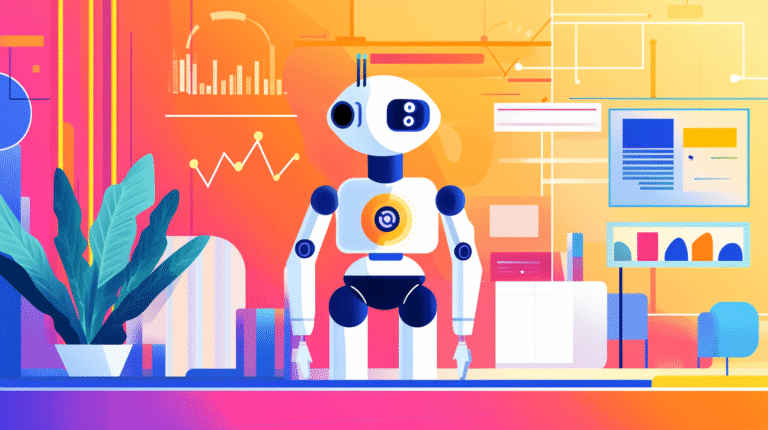Diving Deeper into Advanced AI Agent Architectures
AI agents have come a long way from simple rule-based bots that followed predefined scripts. Today’s most powerful AI systems don’t just respond to inputs: they reason, adapt, and execute tasks with increasing autonomy.
Let’s dive into some of the more advanced architectures that go beyond simple automation. These include self-reflecting agents, memory-enhanced agents, and self-learning agents, all of which introduce greater adaptability and efficiency.
Advanced Architectures: A Breakdown
Self-Reflecting Agents: AI That Thinks About Thinking
Most AI systems generate outputs without assessing whether their reasoning was sound. Self-reflecting agents change this by analyzing their decision-making process and iteratively refining their responses. Think of it like a chess player reviewing past games to improve future strategy.
These agents evaluate their own logic, identify potential errors, and adjust their reasoning accordingly. This capability makes them particularly useful in fields requiring high accuracy, such as legal document analysis or scientific research, where even minor mistakes can have significant consequences.
Memory-Enhanced Agents: AI That Remembers and Adapts
A key limitation of standard AI agents is their lack of long-term memory. Each interaction is treated as isolated, without learning from previous exchanges. Memory-enhanced agents overcome this by retaining context across multiple interactions. Imagine an AI-driven project manager that remembers previous team discussions, deadlines, and individual preferences.
By integrating memory, these agents provide more personalized, contextually relevant assistance. This is especially ideal for industries like healthcare, where patient history plays a crucial role in treatment recommendations.
Memory-enhanced AI can also help in customer service by recalling previous conversations, reducing repetition, and providing more seamless interactions. In enterprise applications, these agents can track evolving projects, learn from team behaviors, and even anticipate needs based on past interactions.
Self-Learning Agents: AI That Evolves Over Time
Traditional AI agents require periodic updates to stay relevant. Self-learning agents, however, continuously refine their understanding based on new data and experiences. Much like a junior analyst learning from daily reports and market fluctuations, these agents adjust their models dynamically.
This capability is particularly valuable in fast-moving industries like finance and cybersecurity, where real-time adaptation is critical to staying ahead of threats and trends. Unlike static models that rely on pre-programmed rules, self-learning agents develop an evolving knowledge base, allowing them to improve fraud detection, optimize supply chains, and enhance personalized marketing strategies.
These agents thrive in environments where uncertainty is high, and rapid decision-making is essential.
Real-World Applications: Where These Agents Shine
AI is already transforming a range of industries, offering smarter and more efficient solutions to everyday problems. Personalized virtual assistants have become increasingly intelligent, adapting to user preferences over time. A self-learning AI concierge can refine its recommendations by analyzing past interactions, offering a seamless and intuitive user experience.
In customer support, self-reflecting agents are redefining how businesses interact with clients. By continuously analyzing past conversations and refining their responses, these agents enhance service quality, reducing response times and improving overall satisfaction. This ability to learn and adjust allows businesses to offer more consistent and empathetic support, even as customer inquiries grow more complex.
Manufacturing is also benefiting from AI-driven predictive maintenance. Memory-enhanced AI systems track equipment performance over extended periods, detecting subtle patterns that indicate potential failures before they happen. This proactive approach minimizes downtime and reduces maintenance costs, keeping operations running smoothly.
In the financial sector, self-learning AI is proving invaluable in market analysis and risk management. By detecting emerging trends and adjusting investment strategies in real-time, these systems help businesses and investors stay ahead of fluctuations. The ability to learn from past financial data and make predictive recommendations is reshaping how investment firms navigate uncertainty.
Healthcare is another area experiencing significant advancements. AI-driven diagnostics that incorporate patient history are improving medical decision-making. With memory-enhanced agents retaining and analyzing vast amounts of patient data, doctors can receive more accurate and personalized treatment recommendations. This leads to improved patient outcomes and a more efficient healthcare system overall.
Business Implications: Why This Matters
Understanding advanced AI architectures is essential for leveraging real business value. Companies adopting sophisticated AI agents can see substantial benefits in efficiency and customer engagement. These systems remember past interactions, creating personalized experiences and improving decision-making.
Self-reflecting agents enhance innovation by refining their strategies, particularly in finance and healthcare. By evolving from real-world inputs, AI aids in risk management, allowing businesses to anticipate challenges proactively.
Integrating these AI architectures enables organizations to transition from reactive automation to proactive problem-solving, ultimately leading to smarter workflows and more accurate decisions. Future success will belong to those who invest in adaptable AI systems.
The Future of AI Agents
As AI agent architectures continue to evolve, the gap between human and machine decision-making will continue to shrink. The next step involves multi-agent collaboration, where specialized AI systems work together, each leveraging their strengths. Imagine an AI legal assistant cross-referencing laws while another agent drafts a contract. The ability to integrate multiple advanced agents will redefine industries from finance to healthcare and beyond.
The businesses that stay ahead will be those that recognize the shift from basic automation to AI agents with deeper reasoning, adaptability, and learning capabilities. By embracing these advanced architectures, organizations can unlock new efficiencies, enhance decision-making, and redefine the way work gets done.
Want to explore how AI agents can be tailored to your business? Start by identifying a workflow that could benefit from greater adaptability or context retention. The future isn’t just about using AI: it’s about designing AI that grows with you.







